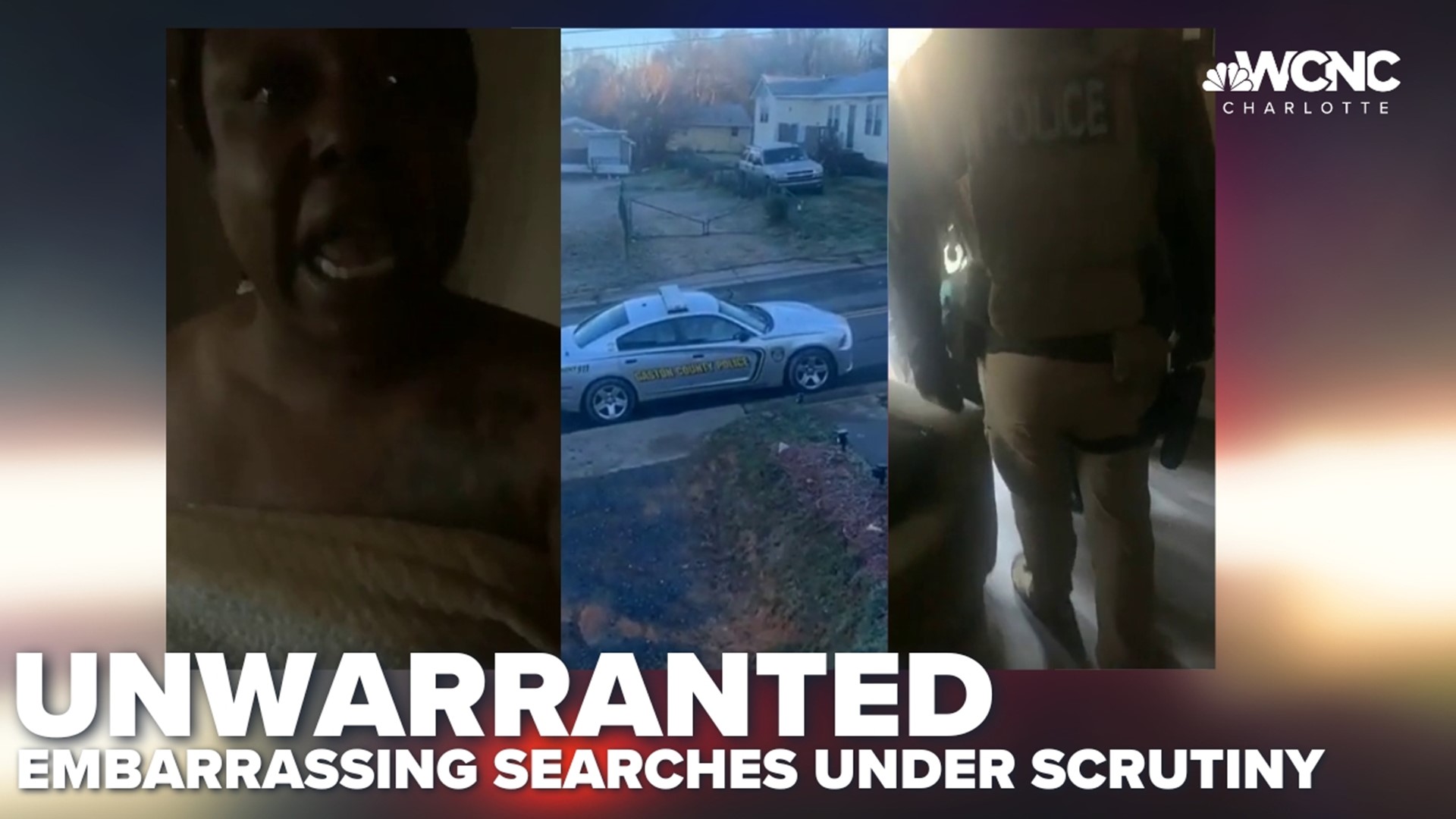GASTON COUNTY, N.C. — Shalanda Ashe may never be the same after the trauma she said she suffered on her front porch.
Ashe is one of four people identified by WCNC Charlotte who have said police in the Carolinas embarrassed them in recent years after unwarranted searches left them exposed.
"It was the most humiliating thing I've ever experienced."
"Every morning when I open my eyes, that's what I remember," Ashe told WCNC Charlotte. "It was the most humiliating thing I've ever experienced."
On Feb. 28, 2022, the 40-year-old Black woman woke up shocked to find a task force of local police, a North Carolina State Bureau of Investigation agent and even a member of the United States Secret Service outside her Gaston County home. The surprise visit and fear that came with it were exacerbated by the fact Ashe said she was undressed at the time.

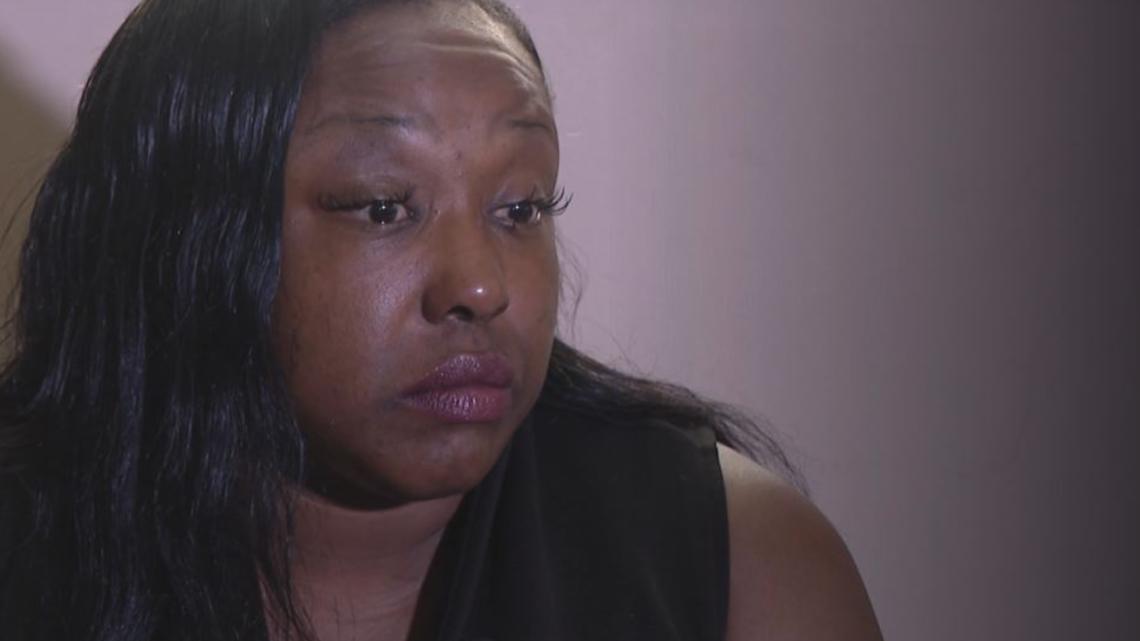
"I'm thinking they're fixing to kick in my door," she said, afraid they would shoot her if officers saw her fumbling in her dresser looking for clothes. "I know I didn't do anything wrong, so I said, 'I'm going to open my door with my hands in the air; show them that I'm naked.'"
According to Ashe, she repeatedly tried to make it clear she wasn't wearing clothes but said that didn't stop a Gaston County police officer from escalating the situation, briefly pulling her outside her home and holding her in the open doorway for roughly 30 seconds.

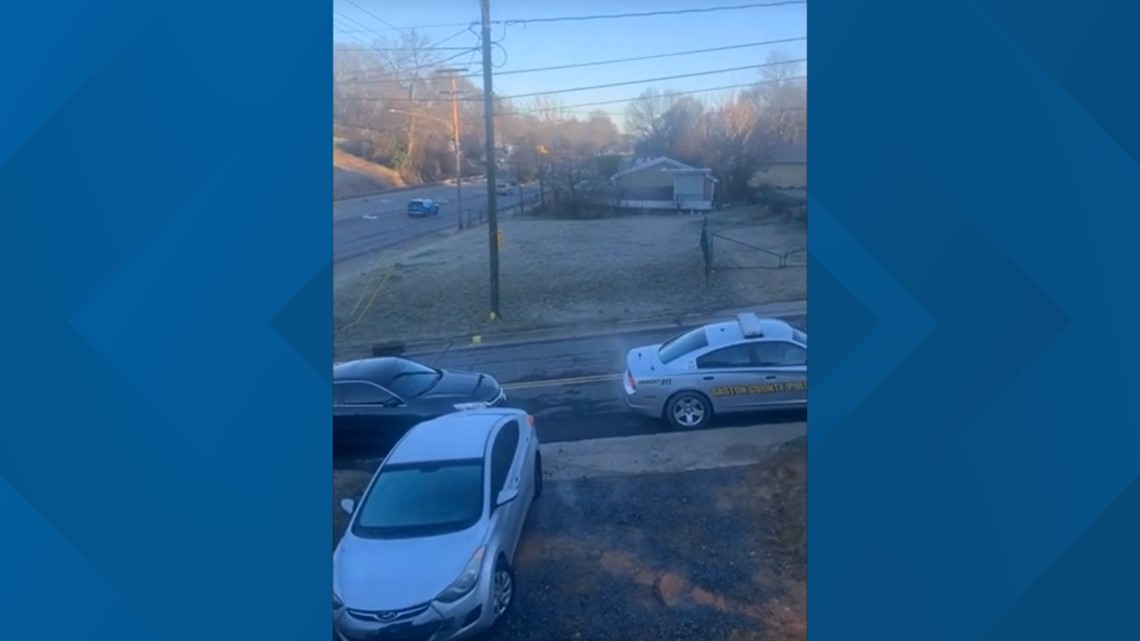
"I put my leg out a little bit further to show him," she said. "Now, they're rushing at the house with big guns pointed at me, and they're saying my sister's name. He just yanks me out, throws me in handcuffs. As I'm on the porch naked, they're searching my home. No one ever asked to search my home."
The Fourth Amendment protects citizens against unreasonable searches, but there's an exception when police have reasonable concern about immediate danger.
Court records show officers thought Ashe's sister, who was wanted for a murder in South Carolina, was at the home in question at the time. They based that conclusion on a car registered in her name that sat outside the home, but Ashe said if they had only asked beforehand, they would've known the car had been parked there for quite some time.


The belief the murder suspect might be inside, along with noise coming from the house and a pit bull inside the home, led the officer to say he feared for his and fellow officers' safety, according to a court transcript.
But, Ashe's sister wasn't at home.
"I have been violated today. I have been totally violated," an angry Ashe said on a Facebook Live stream in the immediate moments after. "You snatched me outside butt-a** naked like I was a criminal."
Ashe's attorney Dominique Camm calls it a civil rights violation.
"In my mind it is," he told WCNC Charlotte "In addition to not just the civil rights, but just decent human rights, there was no empathy. There's a right way to do things. There's a wrong way to do things. We think they were out of line here."

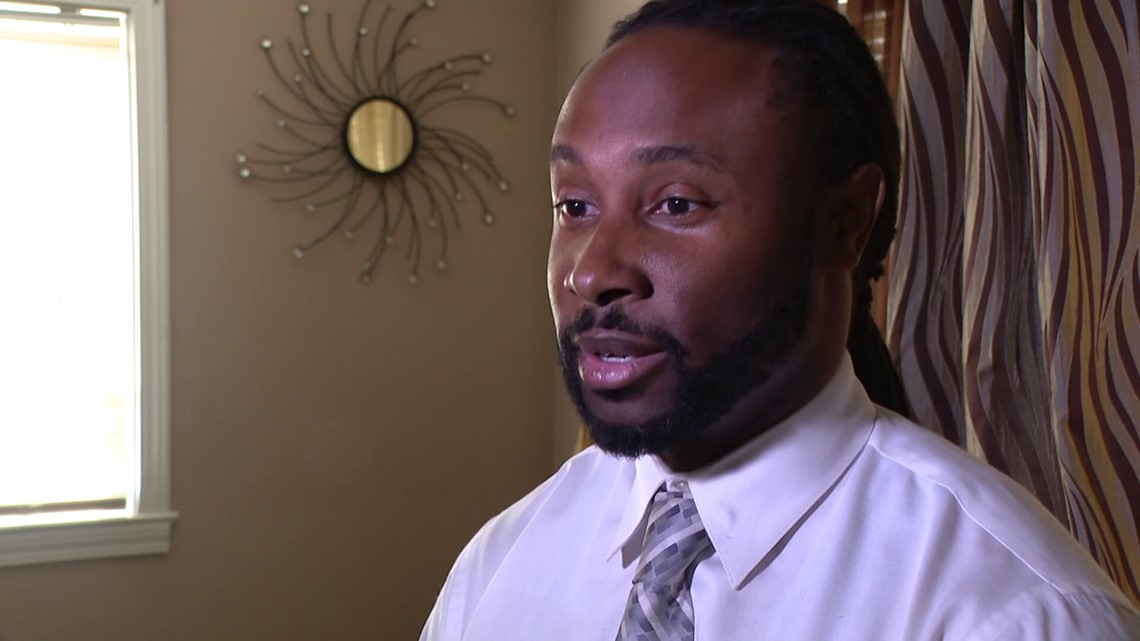
Camm said they've looked but have yet to find any warrants authorizing the search of Ashe's home. The case originated in Barnwell County, South Carolina. Deputy Solicitor David Miller said, while there was a warrant for the sister's arrest, he wouldn't know if there was a search warrant out of Gaston County for Ashe's home.
Gaston County District Attorney Travis Page told WCNC Charlotte he was not aware of this situation. A cursory search by the clerk's office, at WCNC Charlotte's request, did not turn up a search warrant. Ashe said police eventually arrested her sister the following month in another county.
"They didn't even have reliable information that she was here," Camm said. "The house is a very sacred place for obvious reasons. There's an expectation of privacy, there's an expectation of safety and she got both of those violated. This is something that should not happen."
CMPD enters Charlotte woman's home
This isn't Camm's only case like this. He filed a lawsuit in 2022 against the city of Charlotte on behalf of another Black woman, who police also found in her underwear.


Court records and body camera footage reveal Charlotte-Mecklenburg police forced their way into the woman's apartment without a warrant in 2018 after an early morning 911 call from worried neighbors about possible domestic violence. One of the callers said they heard a woman "screaming 'Get off me'" while the other caller said a woman was being "beaten for the last 30-45 minutes."
When officers arrived, they said they were afraid someone's "life was in immediate danger" after hearing a "loud bang" and a woman inside "whimpering and wailing like she was in pain." Despite an officer knocking on the door repeatedly, no one answered.
Once inside, police found "only property was damaged" inside the apartment, but no "signs of injury" or a domestic violence crime, since the other woman "would not fully cooperate with officers," according to court records.
"We do think that her rights were violated," Camm said.
A federal judge disagreed. He recently dismissed the lawsuit and ruled the officers' actions were justified due to "exigent circumstances," defined as "the need to assist persons who are seriously injured or threatened with such injury." CMPD internal investigation records filed with the court show an expert witness determined the two officers did not need to be disciplined as a result since "their actions were proper according to applicable law and CMPD policies."
"Naked and afraid" in Rock Hill

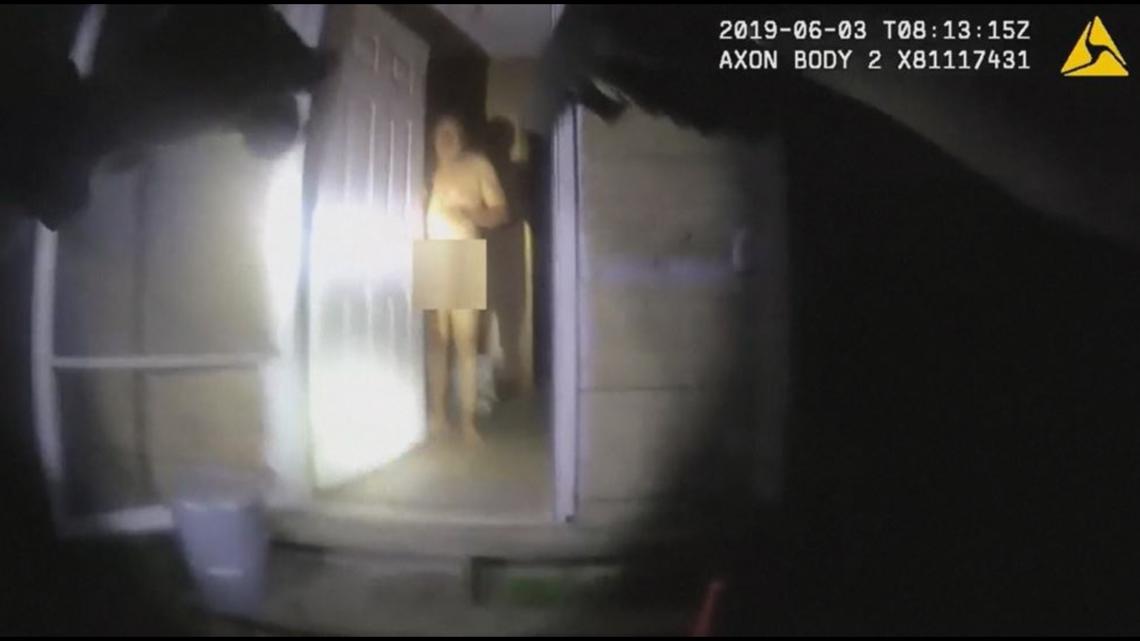
In 2019, just a year after CMPD's incident, Rock Hill police held a naked 71-year-old man at gunpoint. Officers said they were looking for four people connected to a car break-in, noticed a door open, thought the home was abandoned and believed the suspects might be inside.
They weren't. Instead, they found Jethro DeVane and searched his home for his safety, they said. His attorney said, at the time, DeVane was laying down to sleep when he saw a light shining through his bedroom window, got up and opened his door to see who was outside.
RHPD determined the officers "acted within established policies and standard operating procedures," court records show.
DeVane died in 2022 with a lawsuit pending and without receiving a public apology.
"[DeVane], an elderly man, had his hands up the entire time," a federal complaint said. "He was also completely naked and afraid that [the officer] who was aggressively pointing his department-issued firearm, was about to shoot him."
A RHPD spokesperson told WCNC Charlotte the agency does not comment on pending litigation.
"It was frustrating, it was embarrassing and it made me feel ashamed"
Stacey Campbell, meanwhile, recently filed a civil rights lawsuit against the city of Raleigh after a 2020 encounter where she said a female police officer lifted up her bathrobe in front of people outside after already patting her down and finding no weapons.
"It was frustrating, it was embarrassing and it made me feel ashamed," Campbell told WCNC Charlotte. "It wasn't right."

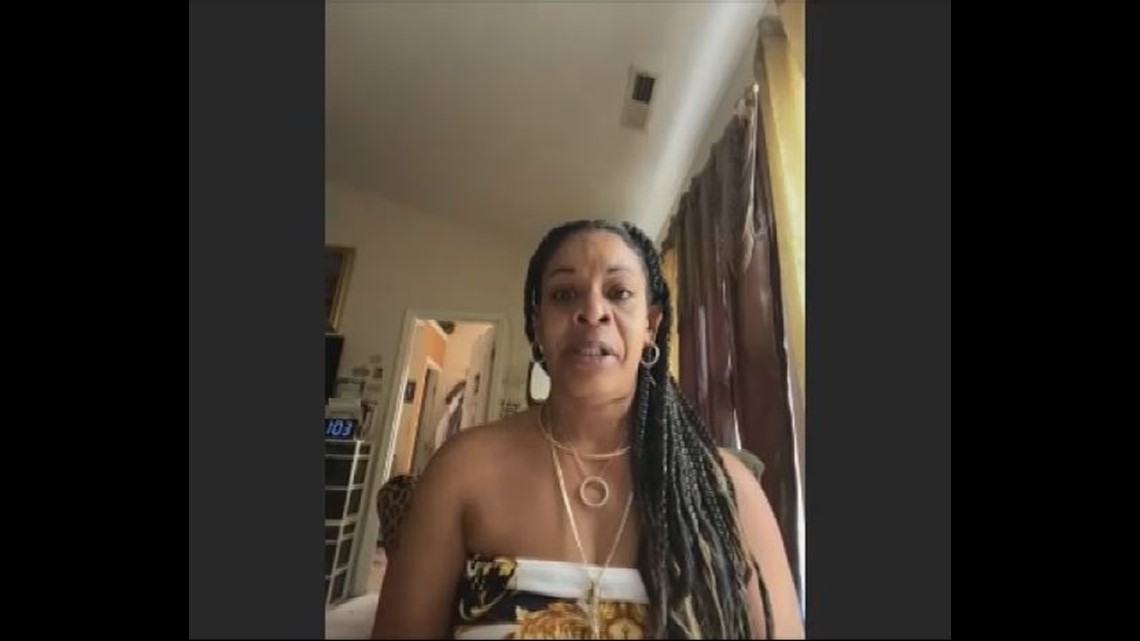
Campbell, now a community activist, said the officer in question stopped her on Sept. 9, 2020, as she walked to her car. The 51-year-old said she cooperated with the officer, who thought the car belonged to someone else.
"After [I've] been patted down, she lifts up the whole bottom of my robe to above my waist, and she exposed the whole lower half of my body," Campbell said. "There were cars going past. There [were] people there standing on the porch looking."
Campbell's lawsuit said the city failed to "properly discipline" the officer for the warrantless search. Campbell said RPD has also not apologized for her treatment.
"No apology whatsoever," Campbell said. "It angers me a lot, because I feel, in this day in age, we should be a lot better and be treated a lot better than this."
"We're not evolving"
In 2019, Chicago police made headlines after they raided the wrong house and handcuffed a naked Anjanette Young. The city eventually paid her a $2.9 million settlement.
Each of these cases brings back memories of law enforcement's checkered history.
"It feels like we have a long way to go," Camm said.


Former FBI agent and federal prosecutor M. Quentin Williams founded an organization called Dedication to Community which helps educate police about building better relationships with vulnerable communities.
"We have a history of distrust," Williams said. "When there are warrantless searches being conducted that are not reasonable, that's a reminder of the past. It promotes the distrust. We're not evolving."
Williams said it's critical law enforcement promotes a culture of trust so that, when they make questionable decisions, the public has confidence in their intentions.
"You have to select the right people, you have to train them well and you have to make them accountable," he said. "If you have trust as a foundation embedded in the community, then the community will give you a break. They'll give you the benefit of the doubt."
In cases where there's nudity, Williams said police must prioritize preserving dignity by making quick and proper decisions. Those decisions, he said, include immediately calling a female officer to the scene if there's not one already there and ensuring the people impacted are given clothes as soon as possible once the police are certain there’s no danger.

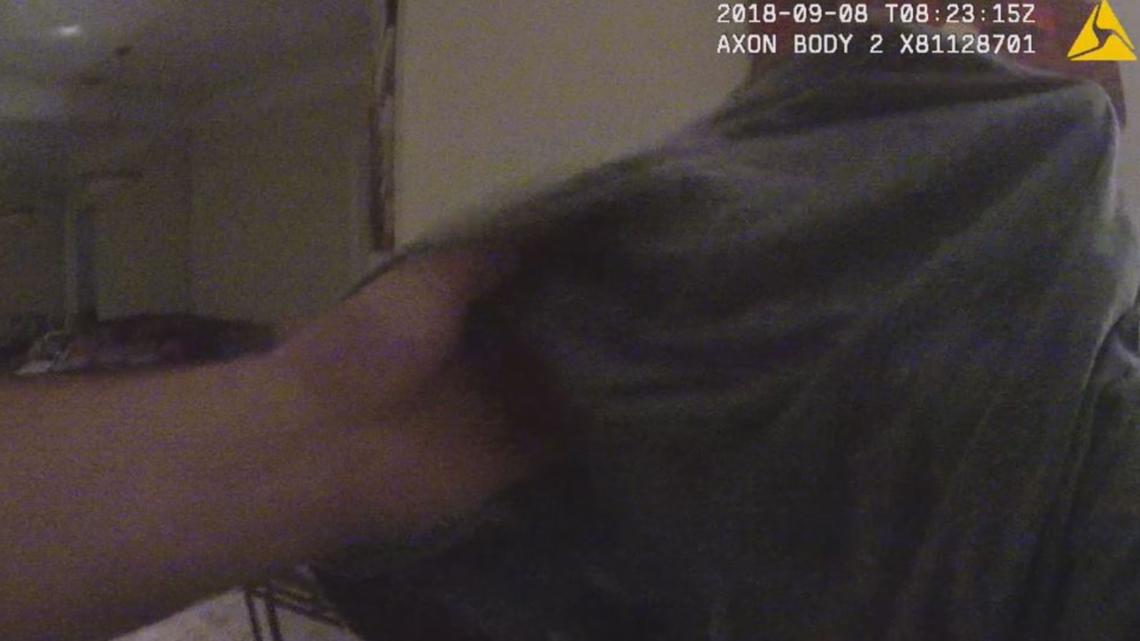
In the 2018 CMPD case, which involved a female officer, body-camera footage shows the primary male officer helped cover the woman with clothes about five minutes after entering the apartment.
In Ashe's case, police eventually gave her a blanket, but only after she said they had already humiliated her. Ashe said she's yet to receive an apology.
"I should have been given privacy and respect," she told WCNC Charlotte. "They need to be held responsible for what they did."
Judge denies public release of police body camera footage
Through a spokesperson for Gaston County, the Gaston County Police Department declined to comment on her case.

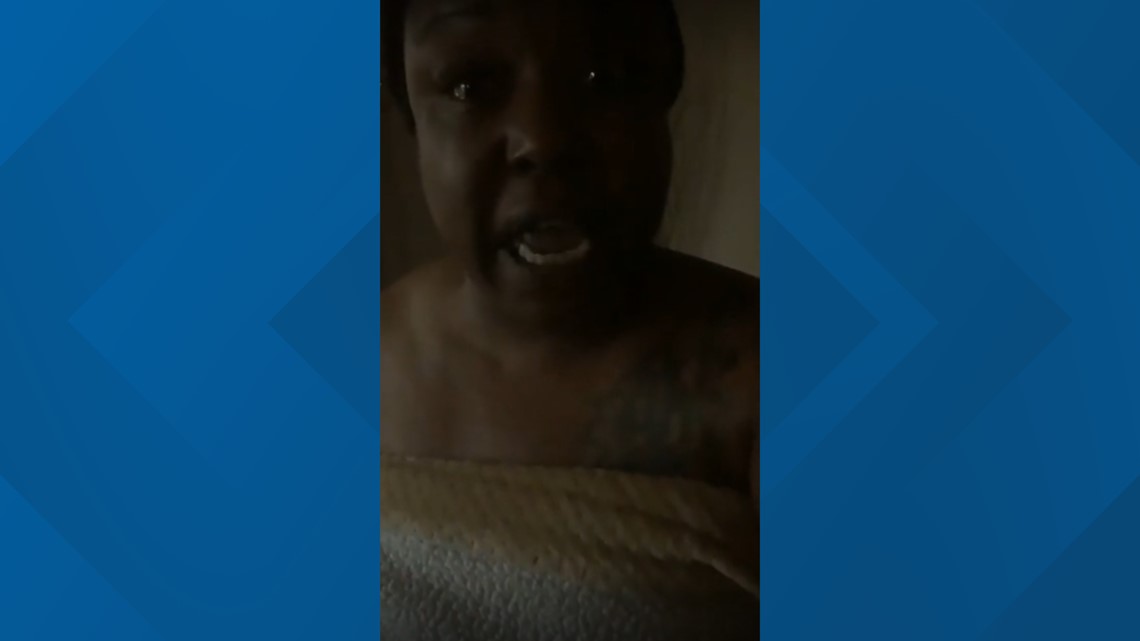
There is body camera footage, but a court transcript reveals Judge Jesse B. Caldwell ruled against releasing the video publicly in June 2022. Gaston County County Attorney Bill Stetzer argued the only reason Ashe, through her attorney, wanted the video released was "to vilify" the officer.
"Do I wish he would have gotten a blanket or a towel sooner? Certainly," Setzer said of the officer in question, according to the transcript from the body camera hearing. "His biggest concern at that moment was not modesty. It was the safety of him and the other officers and [to] effectuate [the] arrest, but [he] didn't need to effectuate it because it was not the right person. For him to be vilified for that is unfair."
Judge Caldwell said Camm's argument for public release didn't show that it was necessary to advance the public interest.
"This is way too broad for me to connect the dots that putting this thing on Facebook is going to accomplish anything other than an attempt to try to embarrass, rightly or wrongly, a law enforcement department or official or officials, without the proper context," the judge said, according to the transcript.
Camm said the end goal is transparency and accountability.
"So, we're concerned about the officer who - their name badges aren't really visible - but at the same time, she was subjected to all of this, we're not concerned about her?" he asked. "We need more awareness of this situation to kind of change the rules so that there are actual harder consequences when things like this happen."
WCNC Charlotte has requested the GCPD's officer's publicly releasable personnel file to determine if he's faced any disciplinary action.
Contact Nate Morabito at nmorabito@wcnc.com and follow him on Facebook, Twitter and Instagram.

